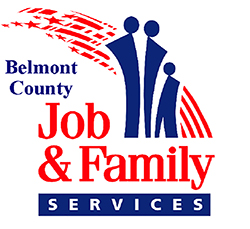Enforcement Tools
When Can A CSEA Take Action To Enforce An Order?
Enforcement starts at the beginning of an order through mandatory income withholdings, if a source is available. Income includes wages from employers, unemployment benefits, workers’ compensation, social security benefits, disability benefits, bank accounts, and pensions.
A CSEA can take specific action to enforce a support order when an obligation is one month or more in default. To be in “default,” an obligor, the person owing a duty of support, must have an arrearage (past due support) greater than or equal to one month’s support obligation.
In addition, if a parent is required to provide medical insurance and is not doing so, the CSEA may take enforcement action. It must be shown that the party has access to Insurance Card medical insurance at a reasonable rate. The employer of the party ordered to carry insurance will receive a National Medical Support Notice (NMSN), which will require the employer to enroll the children in private health insurance.
What Enforcement Actions Can A CSEA Utilize?
- Adding 20% to an income withholding
- Intercepting federal and state tax refunds
- Reporting the delinquent obligor to credit bureaus
- Suspending drivers, recreational and professional licenses
- Freezing and seizing assets held in a financial institution
- Placing liens on certain property
- Issuing an order to require the obligor to seek work
- Blocking passport usage when past due support is at least $2500
- Intercepting lump sum payments, such as bonuses, lottery/casino winnings, and insurance settlements
In addition to these administrative enforcement tools, the CSEA may also take judicial action through civil contempt charges or criminal non-support.
Financial Institution Data Match {FIDM)
FIDM is the process used to collect past due support payments from bank accounts. State child support programs enter into agreements with banks to conduct data matches that will identify accounts of obligors who owe past due support.
When a match is identified, the Child Support Enforcement Agency (CSEA) may freeze the account of the obligor and seize the funds to collect past due child support. An obligor must be in default (owe more than one month’s obligation of support) before a CSEA can utilize the FIDM process. If an obligor has a joint account, only the other account holder is given notice and an opportunity to object.
Use of the FIDM program is at the discretion of each CSEA. Consult your local CSEA regarding their FIDM process.
Lottery, Casino And Racing Winnings
Ohio lottery, casino and racing winnings will be intercepted for past due support. A database will be referenced for any past due support owed with wins of $600 or more on table games with progressive jackpots, and wins of $1,200 or more on slot machines. Casinos and racings will make the determination for submitting winners based upon IRS reporting requirements. An obligor must be in default (owe more than one month’s obligation of support) before a CSEA can intercept lottery, casino and racino winnings.
Child Support Lien Network (CSLN)
Ohio is a member of the Child Support Lien Network (CSLN), a national partnership between states and over 1800 insurance companies. CSLN matches and verifies insurance claims made by child support obligors who meet the following criteria:
- The obligor has an open IV-D case
- The case has been in default for three months
- The obligor owes at least $500 in past due support
The obligor list is run daily for possible matches. If a match is found, CSLN notifies the CSEA, who can then take action to intercept the insurance settlement money.
